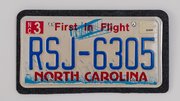Article
Kiosks stop sex offenders, other threats at the door
LobbyGuard kiosks are now being used to protect schools, public offices and private buildings from undesirable visitors.

In December 2007, a man showed up at an elementary school in the northern suburbs of Charlotte, N.C., to have lunch with a student. Upon entering the school, he encountered a digital kiosk and followed the sign-in instructions by entering his name and date of birth. As he waited for his visitor's badge to print, the kiosk notified school officials that the man's information matched the identity of a registered sex offender. The police were called, and a few minutes later, the man was quietly escorted from the school. He was a registered sex offender.
The kiosk that alerted school officials of the sex offender was manufactured by LobbyGuard Solutions LLC, a Raleigh, N.C.-based provider of visitor-management security systems. Founded in 1999, LobbyGuard was one of the first players in the visitor-management space, and over the years has evolved from a pieced-together PC/touchscreen configuration to the all-in-one kiosk model it unveiled in March 2006 and continues to use today.
LobbyGuard updates its database each month, based on public information provided by each state, which usually includes more than 500,000 sex offenders.
"LobbyGuard was developed out of a perceived need for small businesses that do not employ front-desk personnel," said LobbyGuard president Kevin Allen. "Essentially, visitors would sign in through LobbyGuard, and the appropriate employee would be notified. Our product was developed as a kiosk because of the need for self-service in such an environment."
Recently, LobbyGuard's focus has shifted to schools, where, as the story above illustrates, visitor management is especially sensitive. Allen said that LobbyGuard kiosks are currently installed in "hundreds" of school districts covering the lower 48 states and three foreign countries, where more than 1,000 kiosks handle more than 10,000 visitor sign-ins each day.
"LobbyGuard works within the framework of our customers' policies," Allen said. "For example, when a sex offender or other unwanted visitor signs in, LobbyGuard can send instant notifications to any cell phone or e-mail address, alerting security or police of the issue. If the customer wishes to have the LobbyGuard kiosk notify police, it can do so. LobbyGuard identifies sex offenders, no matter where they are registered — meaning an offender can be registered in Oregon and still be stopped by LobbyGuard in Florida. This is important to law enforcement, since many sex offenders fail to register when they move to a new area."
| |||||
 | SPECIAL REPORT...Order Now!The Customer Perspective on Self-Service Technology We surveyed more than 500 consumers to learn how they really feel about kiosks, self-checkout and other types of self-service. Find out what works, what doesn't, and what makes the difference between a device that helps your business and one that just gathers dust. Only: US$249 SSKA Member Price: only US$149 -- Save $100 | ||||
The LobbyGuard kiosk, which comes in a desktop model or as a stand-alone unit, incorporates a touchscreen kiosk interface, camera, driver's license scanner, barcode scanner and visitor badge printer to provide the user with a simple and complete method for signing in and out of a location. It records all visitor and employee traffic details, runs instant background checks, prints photo ID badges and provides access to a full menu of visitor traffic reports that are accessible via the Internet.
The Chesapeake, Va., school district is piloting LobbyGuard at three of its schools, in search of a better way to process visitors and alert school officials when sex offenders enter the premises.
Brian Allen, of Cii Associates Inc., a LobbyGuard distributor, has worked with school officials to establish the pilot program.
LobbyGuard was installed in April 2008, and so far the reception has been very positive.
"It serves a useful purpose," said Craig D. Jones, principal of Western Branch Middle School, one of the Chesapeake schools piloting the program. "It gives us a permanent record of all visitors to the school. It automatically checks visitors against the sex (offender) registry and provides a quick method for visitors to enter and register in the building."
The parents who balked at the new system were worried about how the information would be stored. But Jones said the kiosks merely flag undesirable or questionable visitors and do not supply or store any specific information.
 ChatGPT
ChatGPT Grok
Grok Perplexity
Perplexity Claude
Claude










